Lock Blog
A resource for consumers, locksmiths, and security professionals
A resource for consumers, locksmiths, and security professionals

Space travel forces us to confront a lot of big questions. Where do we come from? Are we alone? How am I going to live on another planet? How will I protect my belongings? Well, to be honest, most people don’t think about what security is going to look like on these extraplanetary outposts. We just assume that these places will be different from Earth, because they are not Earth, and our voyage to another planet will have meant that we have reached a Star Trek level of peace and decreased aggression. But let’s be real. Wherever humans go, crime and disasters will follow. If you really want to think about living on other planets, you are going to have to think about your security. Not just protection from the harsh conditions, but how those precautions will influence security in general.
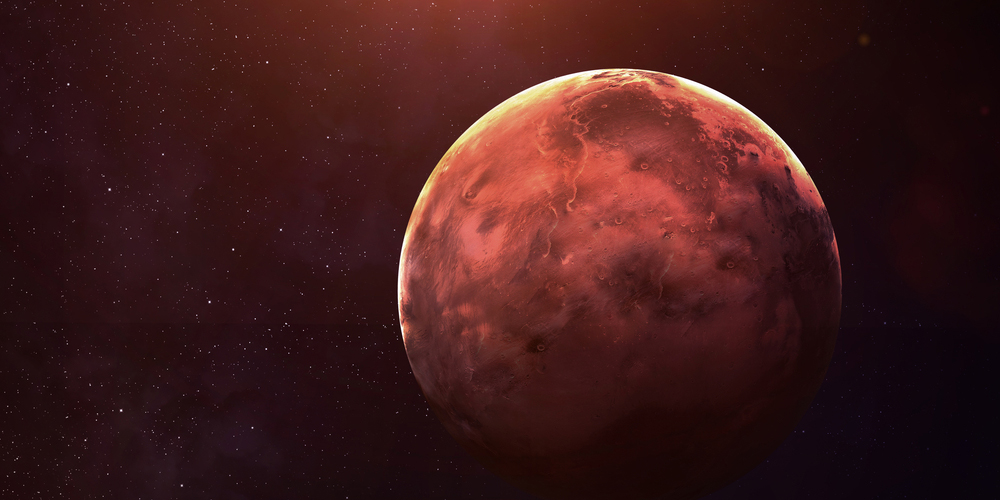
As the closest planet to the sun, Mercury has some very extreme temperature fluctuations. The surface can get as high as 800°F (427°C) during the day and get all the way down to -290°F (143°C) at night. Granted a full day lasts for almost 2 months. There is no atmosphere, so on top of having a black sky (not a blue sky), there would be no weather. The gravity of the planet is 38% less than Earth, so that means every 100 pounds (45 kg) would only seem to weigh 38 lbs (17 kg).
No weather seems as though it would be helpful for preventing weathering, as there would be no wind, snow, rain, mud, but what about the extreme temperature fluctuation? Weathering and elemental exposure are nothing compared to a temperature change as severe as 1,090° in either direction. However, your locks melting would not be an issue, as the brass and steel can withstand such high temperatures. Though their properties would be severely affected in these climates.
The largest concern is actually the gravity differential. With your strength more than doubled, forced entry would be a much larger concern. Even electromagnetic locks, that average a resistance of 1,200 pounds of pressure. On Mercury, it would only require 456 pounds of force. Bolt cutters would need to be more effective because more force could be applied to the handles. For lock composition, there would need to be a focus on cutting and prying resistance. As these are the most costly precautions to defend against, this would result in a pretty high cost for security.
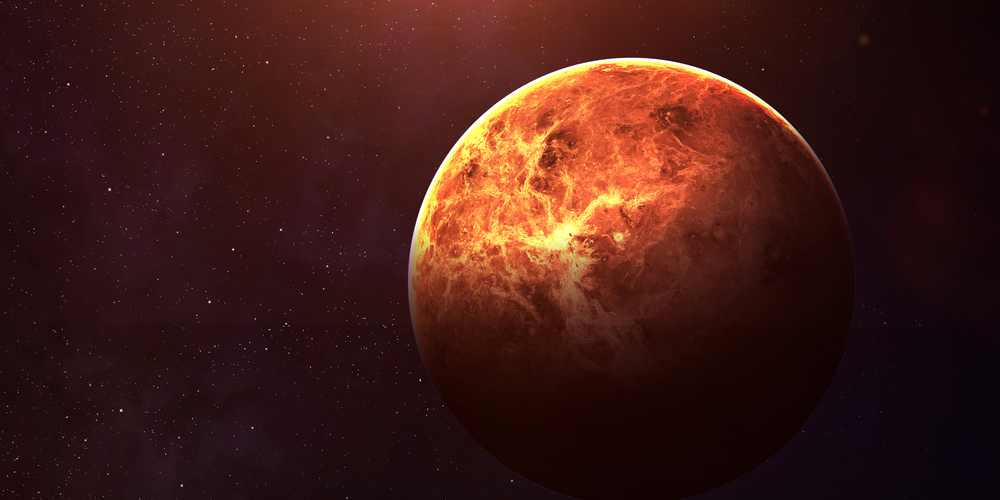
Venus is quite similar to Earth in size and mineral composition. The gravity is about the same, with 91% of Earth’s gravity. However, though the gravity is not all that noticeable, the atmosphere makes up for it. The temperature rests at a brisk average of around 870°F (466°C) due to its incredibly thick atmosphere that traps greenhouse gasses at a runaway rate. The density of the atmosphere also undercuts the gravity similarity, as movement would be hindered greatly, almost as if you were moving in water. The pressure of living there would also be equivalent to being 3,000 feet (914 meters) below the ocean. There is little weather on the surface, with winds peaking at about 2 miles and hour (less than a meter per second). It is the volcanoes you have to worry about, which often reshape the very surface of the planet.
Once again weather resistance is not an issue. The temperature does not pose a melting issue to the metals most commonly used to manufacture locks. And the difficulty of movement, in many respects, assists security. Though you will be able to be slightly stronger, with everything seeming to weigh 9 pounds less (4kg), the atmosphere will make the momentum of force attacks much more difficult to achieve. Remember back to your dreams when you seem like you were moving in slow motion, most of your strength gets sapped up by the retardation of your motion. The pressure would also be manageable, as human beings have traveled 35,858 feet (10930 meters) below the ocean’s surface.
Security is mainly going to center around boundaries that protect you from the lava flow. The focus will be on convenience. Because there is no way to predict a volcanic eruption, these locks will need to open very quickly. The need for quick entry is also increased by the notion that you will not be able to move quickly. Something like modern smart locks would be ideal. The door would open for you based off of a key that could send a signal based on proximity. Due to the large scale nature of volcanic eruptions on Venus, there would also need to be multiple boundaries, walls, trenches, etc. This refocusing on layered elemental protection against nature would be a paradigm shift away from our current Earth-based burglar centric security.
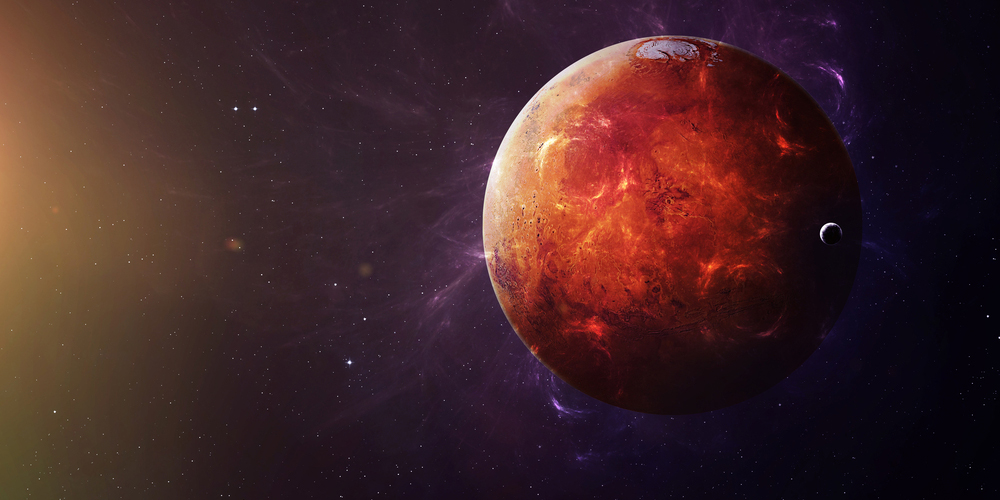
Everyone is fascinated by life on Mars, as it is the most likely planet in our solar system that we will colonize or, at the very least, visit. The temperatures on Mars do not get anywhere as outlandish as some of the other planets. It is a colder planet, with an average surface temperature of -80°F (-62°C). Winter at the poles only gets as chilly as -195°F (-125°C) on average, and common days at the equator are a breezy 68°F (20°C). Meteors and volcanoes are not a concern on this planet, however, there are extremely long and powerful dust storms. These storms will not hurt you, but can sometimes shroud the entire planet. And the gravity is similar to Venus, being 38% of Earth’s pull.
In terms of temperature, there is not much for your locks to be damaged by. The only climate issue would be ice, which would be able to form in keyways due to the presence of moisture in the air. The real concerns are the increased ability to commit forced entry attacks, and a large amount of dust being blown around. The solution to both of these issues would be something like a cross between cast heart padlock and a high-security military padlock like the Sargent and Greenleaf 951C.
It would need to be unbelievably sturdy to fend off what would now be easier means of forced entry. And there would also need to be precautions taken to protect against dust jamming up the lock. A simplification of the internal locking mechanisms could also be useful, as the need for space suits would make the dexterity and tactile awareness for any type of lock picking close to impossible. The severity of the dust storms may even require the use of exterior cases for locks, just so they are given another level of shielding. Several levels of shielding would be ideal, using a full lock cover and then an interior keyway cover.
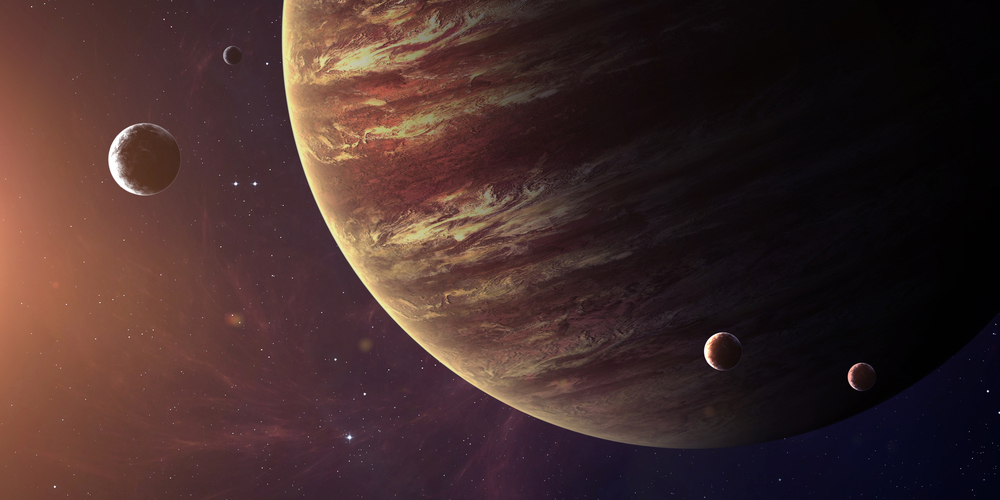
There will be no living on Jupiter proper, as setting foot on the planet’s core (only solid area), would leave you crushed under the weight of the liquid hydrogen above you. But while we are in the area, we can stop by the likely colonizable moon, Europa. Out of the more than 60 moons around the planet, that is the one scientist like the most for potential colonization. The planet has only 13% of Earth’s gravity, meaning that 100 pounds (45kg) would feel equal to 13lbs (6kg). The composition of the moon is mainly ice shelves, with a relatively flat geography, sitting on top of a celestial body of ocean. The ocean surface shifting the outer ice (which would be where humans live) would cause ice quakes, with relative frequency. As you can imagine, an ice planet is pretty cold with equator averages around -260°F (-162°C) and -370°F (-223°C) near the poles.
The largest concern is going to be components being frozen in place. A buildup of ice will be caused by moisture entering the system and then reaching a resting point where the temperature can drop enough for the water to freeze. Such issues will bind up the internals of locks, and even freeze doors shut. Beyond that, in order to fix the lock, there will need to be heat, which will lead to water, which will rust metal locks. For that reason, the locks would, of course, need to be rust resistant, with a composition of something perhaps not even metallic.
Shying away from metals may be the way to go, just because of how little gravity there is. Forcing your way into an area will be quite easy with the assistance of leveraging and cutting tools that just require strength to apply pressure. It may be worth it use non-metallic materials for lock making so that we stray away from materials that have any malleability where they can be bent or pressed. Something like wurtzite boron nitride or mineral lonsdaleite are two materials stronger than diamond, which can be used to compose your lock.
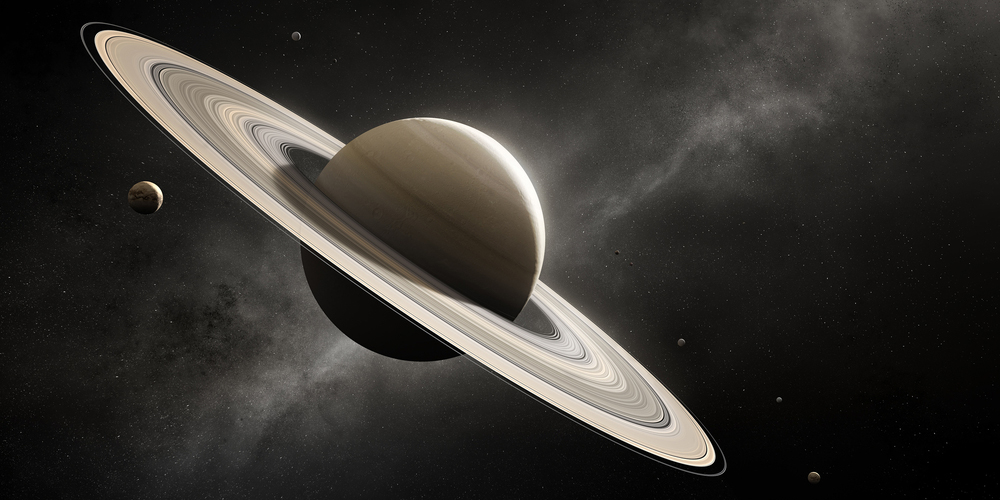
Similar to Jupiter, this gas giant does not have a surface on the planet proper. And very similar to Jupiter, a moon is the best option if you need to stay by Saturn. The moon you really want to live on in Titan. With an atmospheric pressure of approximately 1.5 times that of Earth, you would be able to walk around the surface without a pressurized suit. You would still need some warm clothes for the average temperature of -290°F (-179°C) and an oxygen mask to deal with the atmospheric composition of nitrogen (95%) and methane (5%). The gravity is about 14% of what we have on Earth, and the surface of the planet has no major craters or mountains, being relatively flat all over. There is a lot of liquid methane, composing entire rivers, oceans, and even the rain. The planet is free from cosmic rays due to its thick atmosphere and does not suffer from moonquakes or cyclones.
With few natural disasters, there is no need to be concerned about quick access to a home or shelter. The liquid methane rain would also not be as corrosive to metal as actual water. The only risk of corrosion would be if the atmosphere was terraformed, allowing H2O moisture to contaminate the methane rich environment. Although no one would be wearing space suits for pressure adaptation, they would need some form of suit to deal with the oppressive cold. That means lock picking is still not a real concern, as heavy gloves would decrease dexterity and the ability to detect feedback.
Once again the main issue that arises is the gravity differential. The new found strength that humans will have is going to allow them to force open most every existing lock. The locks that would be used on Titan could be metal, but they would need a tremendous resistance to prying and pinching (bolt cutter like devices). However heat, and cutting attacks would be immensely deterred by the presence of oxygen and water that humans would bring with them, which make methane combustible. If any thief makes a spark, they may get some explosive results.
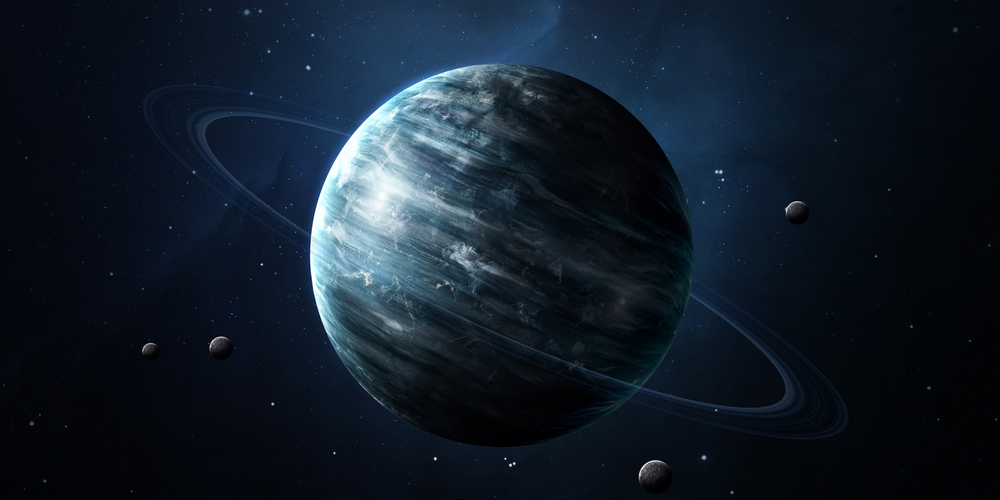
There is not really a surface to Uranus. If you remember the jokes of your childhood, then you may recall that Uranus is a gas giant, composed exclusively of ice and gas. The trend with all the gas giants is that you are going to land on a nearby moon. Out of the 27 moons that we know about, the one with the strongest gravity is Titania. With a whopping 4% of Earth’s gravity, lifting one ton (907 kg) would only feel like you were lifting 80 lbs (36 kg). There is no atmosphere on this moon (or any of the 27 moons) so there is no sky color or weather. The temperature dips below -334°F (-203°C). And along with moonquakes, there are also tremors from ice volcanos.
The issue of moonquakes and cryovolcanism tremors would require greater ease of emergency exiting. The structures could be built to not be destroyed by this type of shaking, but in the event of any natural disaster, you want to be able to exit the structure easily. Of course, you would need to be able to dawn your space suit before rushing outside, so perhaps emergency exits would lead to rooms with cushioned walls without anything that would fall on you. Granted, being shaken around at 4% gravity does not sound that dangerous, but it would still require the ability to act quickly.
The biggest trouble comes with the incredibly low gravity. Most people would probably be able to rip apart most doors and locks with their bare hands. Locks on a planet like this can simply not be effective. They would essentially be privacy locks, that would inform an individual that access was restricted. Security would need to be proactive and responsive instead of relying on locks. With the ability for almost everyone to easily handle items that weigh a ton, people would really need to be on the honor system.
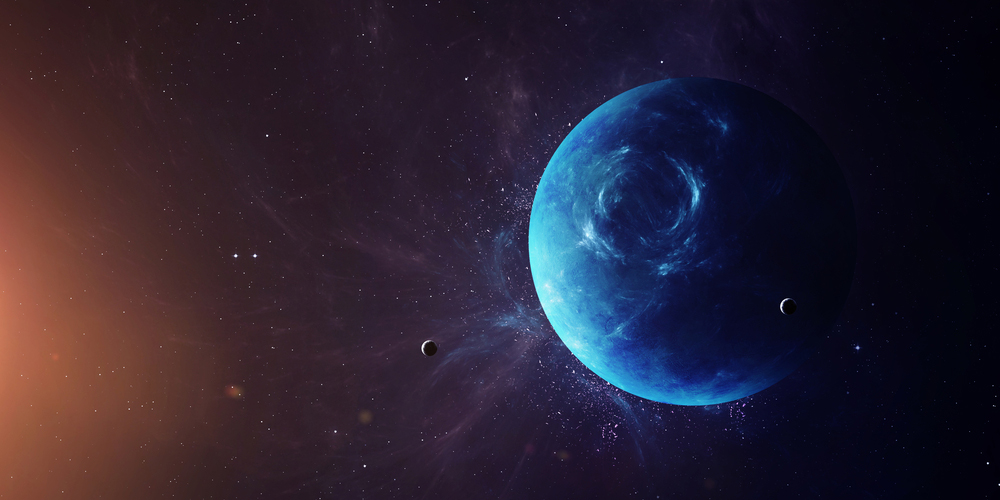
Our final planet (sorry Pluto), is also a gas giant, with no real surface to speak of. And the only real habitable satellite in the area is Neptune’s moon, Triton. This also happens to be the coldest known object in the entire solar system, at an average temperature of -391°F (-235°C). This is cold enough for nitrogen to freeze, leading to the composition of the moon, which is mainly rock and nitrogen ice. The moon’s seasonal temperature fluctuation does lead the nitrogen to melt and even vaporize. For additional nitrogen gas, you have natural occurring nitrogen geysers, which go off regularly sending plumes of gas into the atmosphere. The additional nitrogen has even been building up the atmosphere’s thickness. Even with the atmosphere, there is almost no weather and 8% of Earth’s Gravity. Scientists do not know much about Triton and are not even sure just how dangerous the geysers are.
With an environment so poorly understood, it is hard to say what the security would look like. Going purely based off of what we know, you would have to consider jamming and locking caused by the build up of nitrogen ice. Especially because gas could freeze, there would be almost no way of counteracting a nitrogen ice build up. The most economical solution would be to have some sort of heating system in place so that the internal mechanisms never reached -346°F (-210°C), which is the freezing point of nitrogen.
With one of the larger variations in gravity, there would be a similar problem to securing a structure as we saw in the Uranus section. Guards or more proactive protection would need to be used. Documentation equipment that would be needed to study the planet for further understanding, could also be used as surveillance cameras in order to keep everyone on their best behavior. Intervention and observation are definitely your best bet on this moon.
Someone reading this is undoubtedly thinking to themselves that forced entry attacks would not be a concern because this would defeat the effectiveness of any housing, which would be built to protect the residents from the conditions of the planet. Well, that is a fair question, but it has a very simple answer. That is why it is such a concern. When someone steals from you in space, chances are, they will also leave you with an unlivable home, which due to exposure to the harshness of the planet has destroyed most everything not stolen. So you should be on the lookout for space pirates and space criminals alike because space theft is serious business. It may start with taking protein cubes, and end with you and your family stranded on an ice planet with not even a Tauntaun to your name. So be safe, and remember that security does not end with earth. It goes to infinity, and beyond!
Category: Lock Humor, Lock Types, Safety & Security